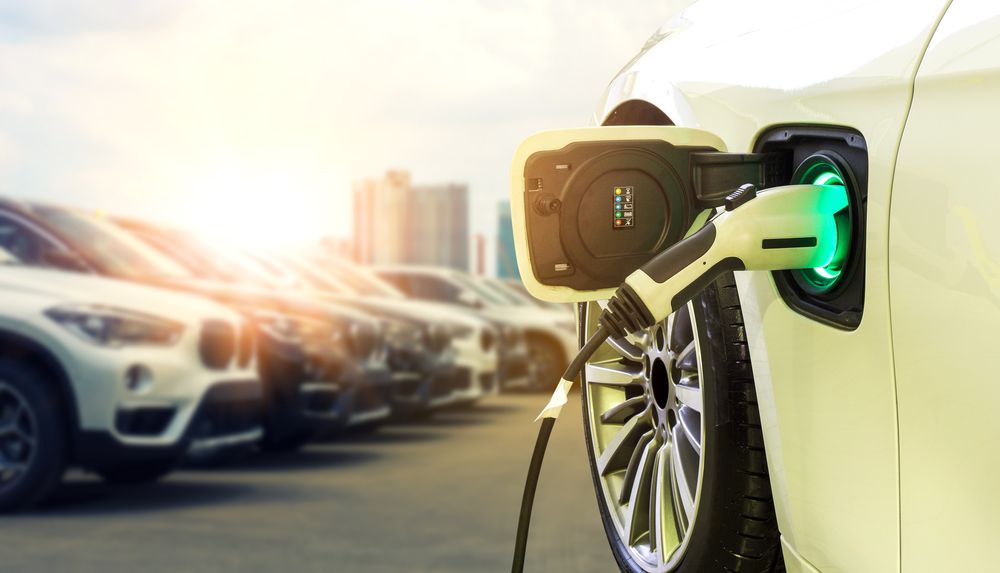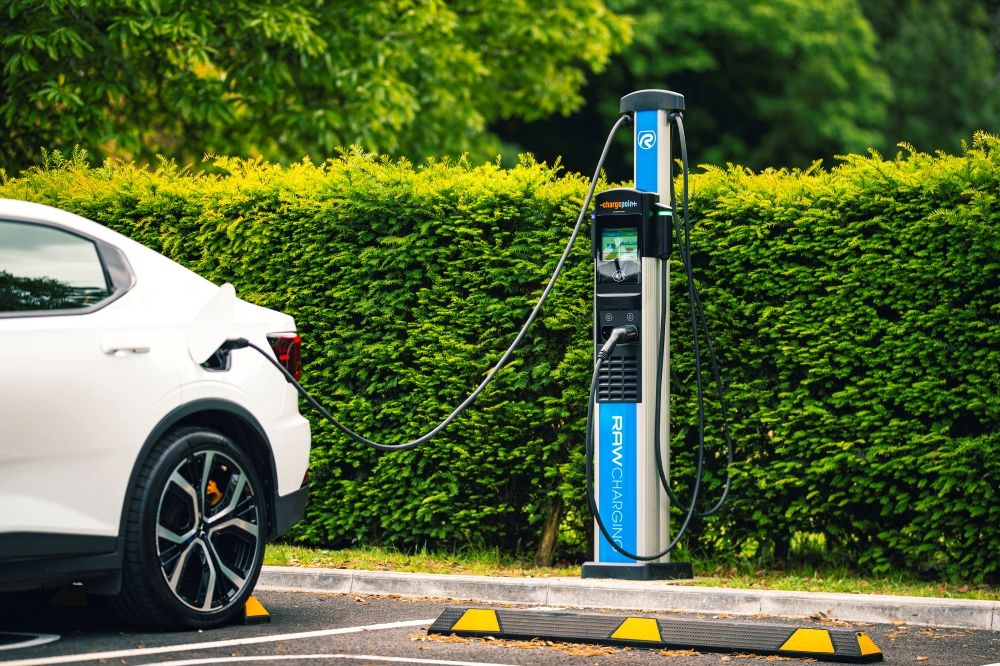Following reports that zero-emission car targets could be watered down, motoring broadcaster and transport campaigner Quentin Willson has called on the UK Government to not go back on commitments that have been made.
According to the i newspaper environmental targets for car makers are at risk of being watered down in a move that threatens the Government’s pledge to ban petrol and diesel sales by 2030.
The i claims that new Transport Secretary Anne-Marie Trevelyan is understood to be considering calls from the automotive industry to lower the number of new environmentally friendly cars and vans it must sell from 2024. A benchmark on sales is set to be the first step in making the industry produce and sell only zero-emission vehicles (ZEVs) by 2030.
But the Transport Secretary has denied the reports on Twitter stating: “Would have thought better of the @theipaper – this article is completely untrue and not being considered at all.”
Motoring broadcaster and transport campaigner Quentin Willson told Transport + Energy: “There’s been an awful lot of activity over the last couple of months from vested interests pushing back against electrification. We see this in various forms but it is the most vociferous I’ve ever known it. Unfortunately it is sending out a message to the Government and people who are not yet convinced about electric cars that there are all sorts of problems.
“Of course the fact of the matter is that this country is probably leading the world in its battery technology. There are a million plug-in cars on the roads, the infrastructure is being rolled out and we’re doing a very good job. But there are vested interests right now who are pushing to try and de-stabilise all of this. If the Government is being pressurised by those vested interests they need to stand up firmly and say we are not going to roll these targets back. It’s important that we have clean air, energy security, independence and cheaper fuel for everyone. That’s what electric cars are all about. From EVs comes R&D with batteries which give us energy storage for the grid, possibly marine, short haul aviation, aerospace and all these new jobs and new technology that the country so badly needs. For them to cravenly start to unpick all of this would be to their eternal shame. “

A number of prominent figures in the industry continue to make the case for clean energy and transportation and Quentin wants to see these voices listened to by the Government.
He remains worried that some misinformation is being amplified and embedded – making the anti electric car narrative stronger. “Then Ministers start to get lobbied and if we’re not careful this will start to unravel,” remarks Quentin. “We’re very worried given that the Government has spent so much on electric car grants and incentivising people – that to sweep it all away would be not just remiss but an environmental sin.
Quentin, who recently spoke to the former Transport Secretary Grant Shapps, wants his predecessor Anne-Marie Trevelyan to come out with a strong statement making clear that the Government is continuing to back the electrification of transport. He also doesn’t want to see recent Government turbulence derail any plans.
“I know that she has said that they’re not going to unpick these targets, but we need a much clearer and definitive response. These industries that have worked so hard and done so much need security and certainty about the future of electrification in this country and what we can export or sell to other countries. We’re so far advanced with this that to destroy it all now would be crazy. We want the Government to say we’re not going to backtrack or do a U-turn.
“With the current tempests raging within the government – and who knows when they will subside – it’s vital we carefully watch that fossil fuel lobbying, electoral calculations or old fashioned fear of change don’t combine to derail the UK electrification ambitions. Amid such chaos we need a clear signal from government that the current uncertainty won’t be an excuse to change EV targets as they have Chancellors.
“The Government and industry has to get together and be clever about this. In a film we’ve put together (watch below) we’ve got the head of batteries at Imperial College saying they don’t degrade and they last longer than the chassis of the car. When you’ve got many voices that are so credible and different from a chorus of dissension on Facebook and Twitter, we’ve got to amplify them so consumers who are thinking about changing, but aren’t sure and are listening to the anti-narratives, that they are reassured by these expert credible voices who are saying don’t believe the stuff you hear from others because it’s just plainly not true.”
The founder of FairCharge says the messaging must be focused around three key pillars: clean air, energy independence and cheaper fuel for everyone.
“This will save us trillions,” adds Quentin. “We need to start looking at these numbers and saying this is the definitive truth. We need credible independent voices to say this. Electrification will create tens of thousands of highly skilled and highly paid jobs. I’m saying to the Government make it clear to us. Don’t prevaricate, don’t vacillate, be absolutely unambiguous that the targets are here to stay.
“My biggest fear is that the Government listens to this small vociferous minority, and as they are desperate for re-election and support, that they kowtow to these people who don’t want onshore wind farms or solar panels and ignore the long term gains that we as society could get from cleaner, sustainable and renewable electricity. They must take a long term view that this benefits this generation and the generations that come after it. We’ve had no seriously well crafted energy policy and that’s what we need now. We must not rely on Putin’s gas and oil from Saudi Arabia. Now is the time we should be looking at this and saying this must never happen again – we must never not have energy independence.
“The bottom line is if we don’t do this as a country China will. If you want to surrender all this work that we’ve done to the Chinese and they can have all the jobs and benefits and the clean air then that’s what will happen. We will to our eternal regret look back and say why didn’t we do this?”
GRIDSERVE CEO Toddington Harper said: “I think it is essential that the Government maintains its steadfast commitment to net zero. The latest IPCC report which came out in April said that we need to peak global emissions by 2025 at the latest in order to maintain temperatures within 1.5°C of warming. We haven’t got time to wait. Now is not the time to be loosening any net zero targets. On the contrary, now is the time to broaden our resolve to get to net zero in the earliest possible timeframes.
“It is absolutely essential that we rely on the science. The additional worrying situation we’re in is that the war in Ukraine is being sighted as a reason to not prioritise focusing on addressing climate change. Whereas in reality the war has further highlighted how fragile our economies are due to our dependence on fossil fuels. We therefore need to be focusing on removing this addiction to fossil fuels as quickly as possible and increasing our reliance on home grown energy like solar and wind. We also need to stay committed to relying on the science. The world’s leading scientists at the IPCC have said we need to peak global emissions by 2025 at the latest to keep temperature rises to within 1.5 degrees of warming. Until someone can tell me a better North Star than that, that’s what I’m going to focus on achieving. It is essential that we remain aligned around the science and we don’t let present circumstances provide a reason to distract and change course. We’re running out of time.”
A DfT spokesperson told the i: “We remain firm in our commitment to phase out the sale of new petrol and diesel cars and vans by 2030.
“We want to UK to be a world leader in electric vehicles, so we have pledged £2.5 billion to support the transition which will create new jobs and growth across the UK. Electric vehicles offer opportunities for savings against their petrol and diesel counterparts thanks to cheaper charging, lower maintenance costs and tax incentives. We have, however, been clear that consumers will still be able to buy second-hand petrol and diesel cars after 2030.”
Quentin Willson will speak at the Transport + Energy Forum – an event which is taking place on 17th November at the Birmingham Conference & Events Centre and will bring together key stakeholder groups to discuss the actions that need to be taken to reach net zero. The founder of FairCharge is a member of the Transport + Energy editorial board and joins a stellar lineup which includes representatives from the Office for Zero Emission Vehicles (OZEV) National Grid, Energy Networks Association, National Highways, The Electric Vehicle Network and XPO Logistics.
Quentin, who writes a regular column for the brand, will chair a panel debate and provide an update on the work of FairCharge – a campaign group which is calling on the Government to immediately cut VAT on public charging or risk the roll-out of the electric vehicle (EV) charging network stalling.
You can view the draft agenda here.












